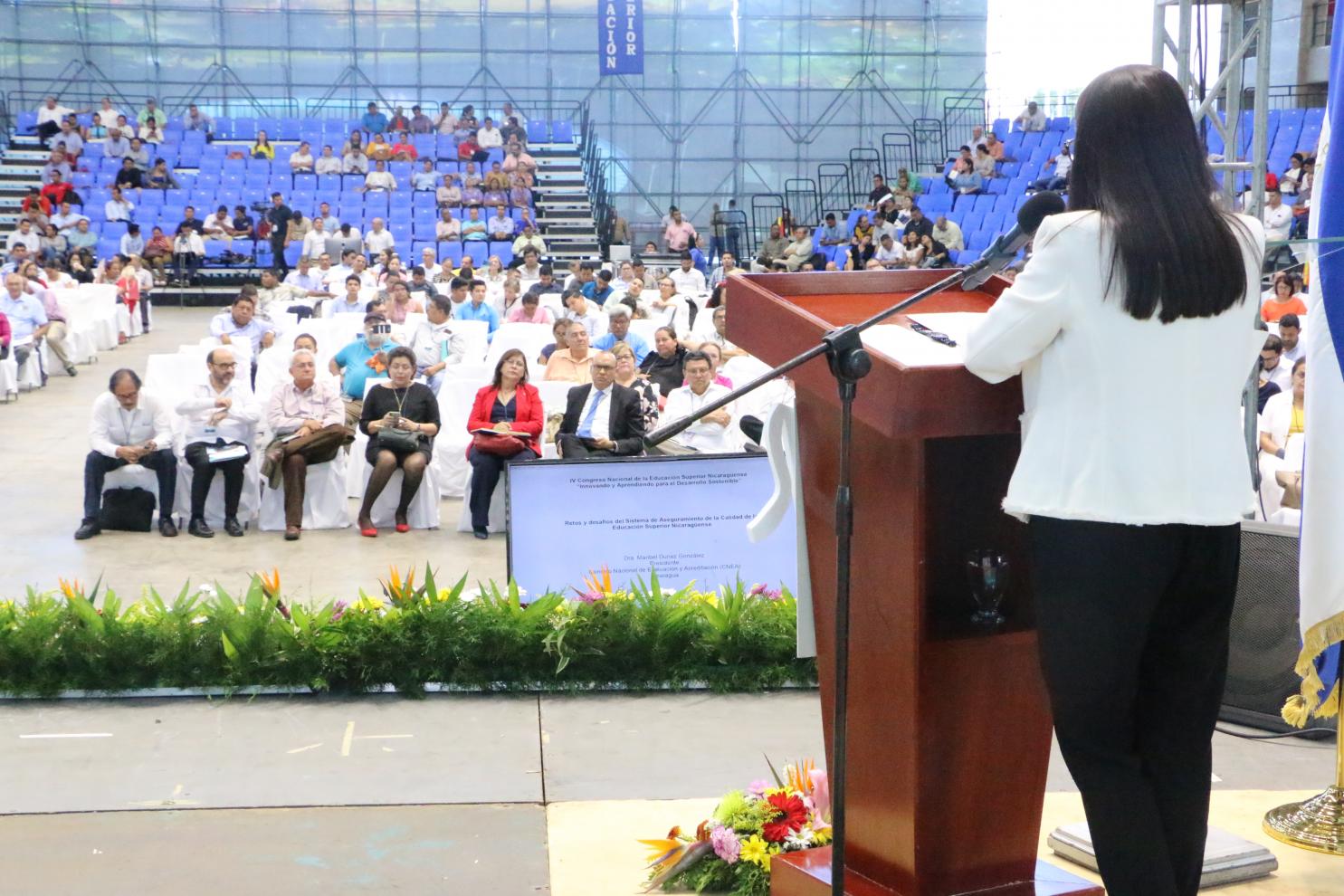
Lectures
By: Juan Polanco Hernández
Central American and Latin American integration through Higher Education is one of the challenges that national universities have, therefore, during the IV National Congress of Nicaraguan Higher Education, Dr. Carlos Alvarado, Secretary General of the Central American University Higher Council (Csuca), addressed the challenges and challenges of this integration through his master lecture "El Csuca, model of academic integration".
During his lecture, Dr. He explained and outlined the various networks, institutes, institutions, universities, councils that are continuously working for the integration process into higher education, highlighting some challenges these institutions have in achieving quality assurance and relevance in each country.
Giving answers from education
"Higher education must work to solve problems in the region, through timely and concrete responses. Universities need to establish specialized research units for innovation and quality assurance," Alvarado said.
According to Dr. Alvarado, universities must work and ensure the impact throughout their environment, from their researchers, teachers and, above all, on training professionals, since "they are foundations for the social and economic change that we all crave," he said.
Quality challenges and challenges in Higher Education
Also, during the National Congress, Dr. Maribel Duriez, President of the National Evaluation and Accreditation Council (CNEA), presented a keynote conference on the quality of Nicaraguan Higher Education, where she mentioned certain criteria that must change as part of the challenges of improving education, from teaching, research and university extension.
"We must think of the university as a strategic model, considering the subjects. From the topics that will be presented at this congress we are all introduced to the debate of how we understand quality," he said.
In addition, Dr. Made the point to the new technological methods that can be used from the teaching-learning process, such as Information and Communication Technologies, but also, modern methodologies that are new flexible paradigms that train students.
Interculturality and quality in education
Finally, the academic mentioned the importance of interculturality in Higher Education, highlighting the work of URACCAN, through the rector Alta Hooker, sharing that interculturality must be incorporated into the strategic plan of Higher Education. "I want to mention our interest as an agency of the state in which we must give importance and relevance to the issue of interculturality, which by the way is not a single theme of the Caribbean Coast, has been made visible in CRES 2018 by one of its leaders, Dr. Alta Hooker, for whom I ask for a great round of applause," he said.
"We have to recognize that we still don't have an understanding of what interculturality is and how we should put it into practice in the classroom and in our institutions," Duriez concluded.
- Log in to post comments
- 176 views
